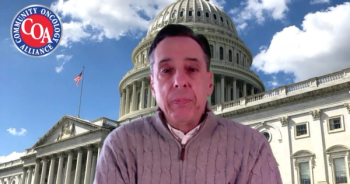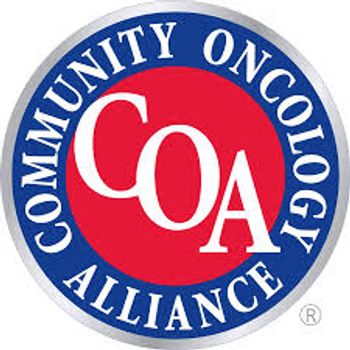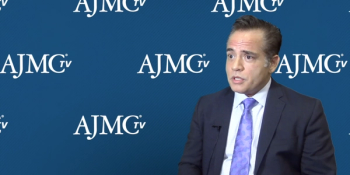
Bo Gamble, Director of Strategic Practice Initiatives, Community Oncology Alliance, highlights his questions for the keynote speakers of the 2021 Community Oncology Conference, and takeaways he hopes audience members gain from the sessions.

Bo Gamble, Director of Strategic Practice Initiatives, Community Oncology Alliance, highlights his questions for the keynote speakers of the 2021 Community Oncology Conference, and takeaways he hopes audience members gain from the sessions.

Ted Okon, MBA, executive director, Community Oncology Alliance (COA), speaks on the most significant challenges members encountered in the past year managing the COVID-19 pandemic ahead of the 2021 Community Oncology Conference.

Jeff Patton, MD, CEO, OneOncology, chairman of the board, Tennessee Oncology, discusses what audience members should expect from the Community Oncology Conference 2021 and sessions he is looking forward to.

The Community Oncology Alliance's request includes declarations from community oncology practices detailing the anticipated ramifications should the Most Favored Nation rule become operative.

Kashyap Patel, MD, associate editor of Evidence-Based Oncology, a publication of The American Journal of Managed Care, will serve a 1-year term beginning in January.

As novel therapies drive up the cost of cancer care, federal policy decisions are being made that influence oncologists' ability to deliver cancer care, said Debra Patt, MD, PhD, MBA, MPH, of Texas Oncology.

Cancer screenings and treatments saw a sharp decline during the early months of the pandemic. The authors of a new study on the delays in care warn that the fallout may be grim.

Virtual Payer Exchange Summit on Oncology Payment Reform will be held October 27-28, 2020.

Telehealth is an effective substitute for some, but not all and in-person visits for cancer care should continue beyond COVID-19 public health emergency.

Patients and cancer care providers should not suffer from election-year politics, especially during a global pandemic.

Kashyap Patel, MD, CEO of Carolina Blood and Cancer Care, associate editor of Evidence-Based Oncology, and vice president of the Community Oncology Alliance, discusses his new book.

Oncology practices in 2-sided risk arrangements have reported mixed results, pointing to the need for more time to make the transition, said Michael Diaz, MD, president of Community Oncology Alliance.

Networking with other practices, sharing ideas, and getting physicians involved in the process can aid community practices moving to alternative payment models (APMs), said Michael Diaz, MD, president of Community Oncology Alliance.

Editor's Note: A book by Kashyap Patel, MD, reviewed in the April issue of Evidence-Based Oncology™, was previously titled, Dying Without Fear. Due to a change by the publisher, Penguin Random House India, the book is now titled Between Life and Death: From Despair to Hope. The book is available August 1, 2020 This review has been updated to reflect the change in the book's title.

The Community Oncology Alliance (COA) said it is worried that the safety of patients with cancer will be compromised if home infusion regulatory changes, brought about by the coronavirus disease 2019 (COVID-19) pandemic, expand; other groups support the changes, which affect Medicare patients using Part B drugs.

Part of the reason COA recommended a 'ramp up' period is we need time for the vendors to understand what they need to be incorporating in their software, said Michael Diaz, MD, president of Community Oncology Alliance.

"We want to make sure practices have time to learn, understand, adapt, and modify, to a new Oncology Care Model," said Michael Diaz, MD, president of Community Oncology Alliance.

While there are similarities to the Oncology Care Model, the new model has features “that could have a substantial impact on practices that choose to participate,” the authors write.

Results come at the decision point for practices: Will it be 1-sided or 2-sided risk?

The Community Oncology Alliance (COA) has submitted formal comments to CMS about the agency’s proposed Radiation Oncology Model. In the letter, COA noted that while they appreciate CMS' decision to issue a model that is focused on radiation oncology and to transition providers to value-based care, they also emphasized their opposition to mandatory demonstration projects and expressed concern that the proposed model will create unnecessary burdens and challenges to physicians.

Following CMS’ decision to make chimeric antigen receptor (CAR) T-cell therapy available to Medicare beneficiaries nationwide, including in the community oncology setting, the Community Oncology Alliance (COA) applauded the decision.

The Community Oncology Alliance (COA) is applauding the Trump administration for its Medicare payment rule updates for physicians and hospitals, saying that the updates demonstrate that HHS and CMS are serious about implementing major reforms to reduce physicians’ unnecessary paperwork and adding competition into the healthcare system.

On behalf of the Community Oncology Alliance (COA), Ted Okon, executive director of COA, has released a statement regarding the Prescription Drug Pricing Reduction Act.

In response to CMS’ announcement outlining the Radiation Oncology Alternative Payment Model, the Community Oncology Alliance (COA) has expressed concerns over the model being mandatory or “required” by the agency.

Community Oncology Alliance's (COA's) executive director Ted Okon has released a statement expressing disappointment over the Trump administration’s decision to abandon a proposed rule to eliminate rebates in Medicare Part D and Medicaid managed care.

The Community Oncology Alliance (COA) is offering praise for the Senate Finance Committee over its pharmacy benefit manager (PBM) hearing, which COA called a reminder that PBMs refuse to acknowledge their role in rising drug costs.

The Community Oncology Alliance (COA) has submitted formal comments to CMS regarding the agency's proposed national coverage determination for chimeric antigen receptor (CAR) T-cell therapy.

The Community Oncology Alliance has released its 2018 Year in Review, offering a comprehensive look at highlights and successes from the year.

The Community Oncology Alliance (COA) applauded President Donald Trump, HHS Secretary Alex Azar, Inspector General Daniel Levinson, and HHS staff for staking a strong stance against rebates and proposing to overal the current system.

The Community Oncology Alliance (COA) has submitted formal comments to CMS regarding the Medicare Program International Pricing Index Model for Medicare Part B Drugs pre-poposed rule

259 Prospect Plains Rd, Bldg H
Cranbury, NJ 08512
© 2025 MJH Life Sciences®
All rights reserved.
